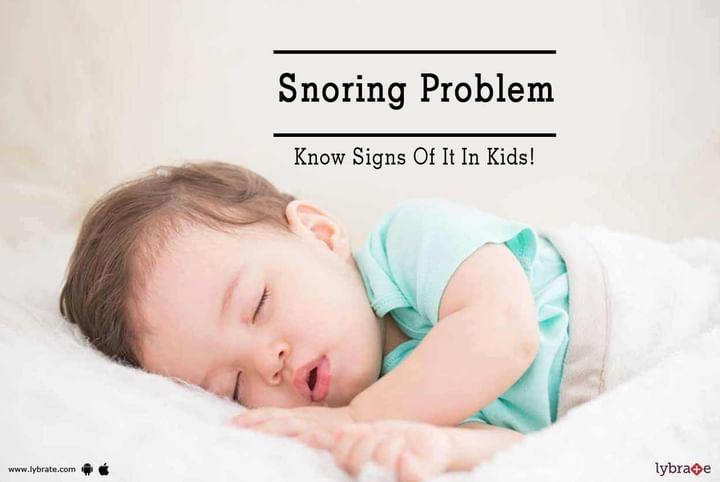Snoring Problem - Know Signs Of It In Kids!
When there are vibrations in the top airways of the respiratory system because of obstruction to the air movement during the time of sleep, it leads to the sound of snoring. When a child gently squeaks or snores at night, it could be a warning sign of an underlying sleep disorder.
Common Reasons for Snoring in Children
• Infection in the Respiratory System- If the child suffers from a stuffy nose or from chronic allergies or cold then there is a chance that the snoring is brought on about by a blockage to the sinuses. The blockage to the nasal canal makes it difficult for the child to breathe normally and instead has to breathe through the mouth leading to the sound of snoring.
• Inflamed Tonsils- Enlarged adenoids, as well as tonsils, are the primary reasons for snoring in children. It is also a strong indicator of sleep apnea. The inflamed glands block the airways and the child finds it difficult to breathe during the night.
• Diverged Septum- When the airway of the nostrils is offset, it leads to the condition of a diverged or deviated septum. This again makes breathing through the nose quite a difficult job. This is because the passage is smaller as compared to others, lowering the quantity of airflow.
• Obstructive Sleep Apnea- Obstructive sleep apnea is a severe condition where the airflow becomes obstructed completely via the respiratory system. This makes breathing difficult through the nose and can lead to other associated health issues.
Symptoms of Various Snoring Problems in Children
Each of the disorders stated above is characterized by a number of symptoms that lead to the problem of snoring in children. These may include-
• The child continues to snore almost regularly
• The breathing is brought to a halt by snorts, gasps or pauses that extend longer than ten seconds
• The child suffers from restless sleep or tends to sleep in awkward positions especially with the head tipped backwards. Remedies After observing your child’s symptoms there are a few remedies you can try on the recommendation of your paediatrician.
• Give the child some medications for allergy or congestion
• You can put your child’s head up with the help of a pillow.
This can clear up the blocked nasal passage and bring the child some relief. Aside from these, your paediatrician might feel that you take your child and go see either an ENT specialist or a sleep specialist to figure out if the child suffers from obstructive sleep apnea.



+1.svg)
